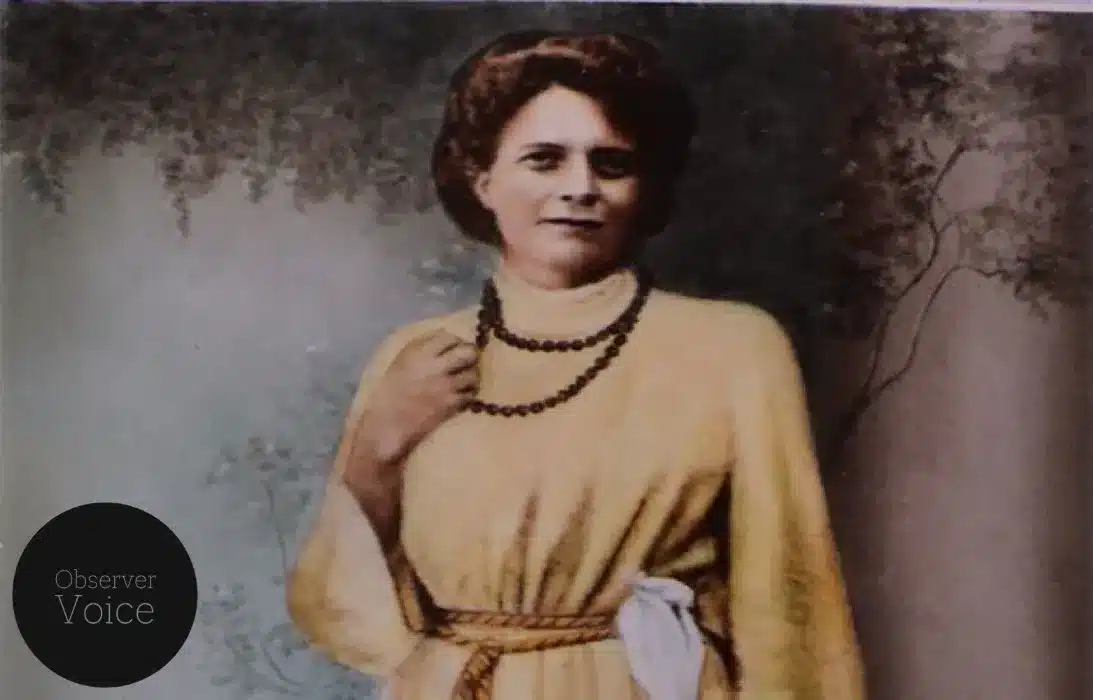Sister Nivedita: A Beacon of Selfless Service and Education

Nivedita, also called Sister Nivedita, original name Margaret Elizabeth Noble, (28 October 1867 – 13 October 1911) was a writer, social worker, disciple of Swami Vivekananda, and an influential spokesperson promoting Indian national consciousness, unity, and freedom.
Life and Career
Sister Nivedita was born on 28 October 1867, in the United Kingdom. She was a baby; she was a zealous child full of energy and enthusiasm. When she was eight, she realized religion wasn’t about believing in the Doctrines, but about finding the divine light that brought enlightenment.
She had the talent to teach and inspire. From 1884 to 1894, she worked as a teacher in different schools around Ireland and England before starting her own school in Wimbledon. As an excellent writer and speaker, she joined the Sesame Club in London and met George Bernard Shaw and Thomas Huxley.
Later Years
In 1895, she met Swami Vivekananda in England and fell in love with his humanistic teachings and Vedanta’s universal principles. Before he left England in 1896, she accepted him as her guru (spiritual teacher) and worked for the Vedanta movement in England. Vivekananda gave her the name Nivedita (“Dedicated One”) for her level of devotion. In India, she helped Vivekananda realize his plans to educate women, and opened a small school in Calcutta (now Kolkata) that blended Indian and Western traditions. In 1899, she closed the school to raise funds abroad but reopened it in 1902. In addition to basic academics, she started teaching arts and crafts to young women.
Social Work
Sister Nivedita started a school for girls in 1898, who didn’t even have basic education. She was involved in a lot of altruistic stuff. Her mission was to improve the lives of Indian women from all social classes and castes. Nivedita had good relations with a lot of Bengali intellectuals, like Nobel laureate Rabindranath Tagore. She promoted and brought forward the cause of Indian independence in the later years of her life. Her writings expressed her pan-Indian nationalism. She was a motivator for everyone. She gave people direction on how to live their lives through her lectures and various discourses. She spent her life serving the people and society.
Her works included The Web of Indian Life, Kali the mother, The Master as I Saw Him, Notes of Some Wanderings with the Swami Vivekananda, Cradle Tales of Hinduism on the stories from Puranas, Ramayana, and Mahabharata, Civil Ideal and Indian Nationality, Glimpses of Famine and Flood in East Bengal—1906. She died on 13 October 1911, in West Bengal, India.
Read More: 12 October: Remembering Ram Manohar Lohia on his Punya Tithi
Observer Voice is the one stop site for National, International news, Sports, Editor’s Choice, Art/culture contents, Quotes and much more. We also cover historical contents. Historical contents includes World History, Indian History, and what happened today. The website also covers Entertainment across the India and World.

